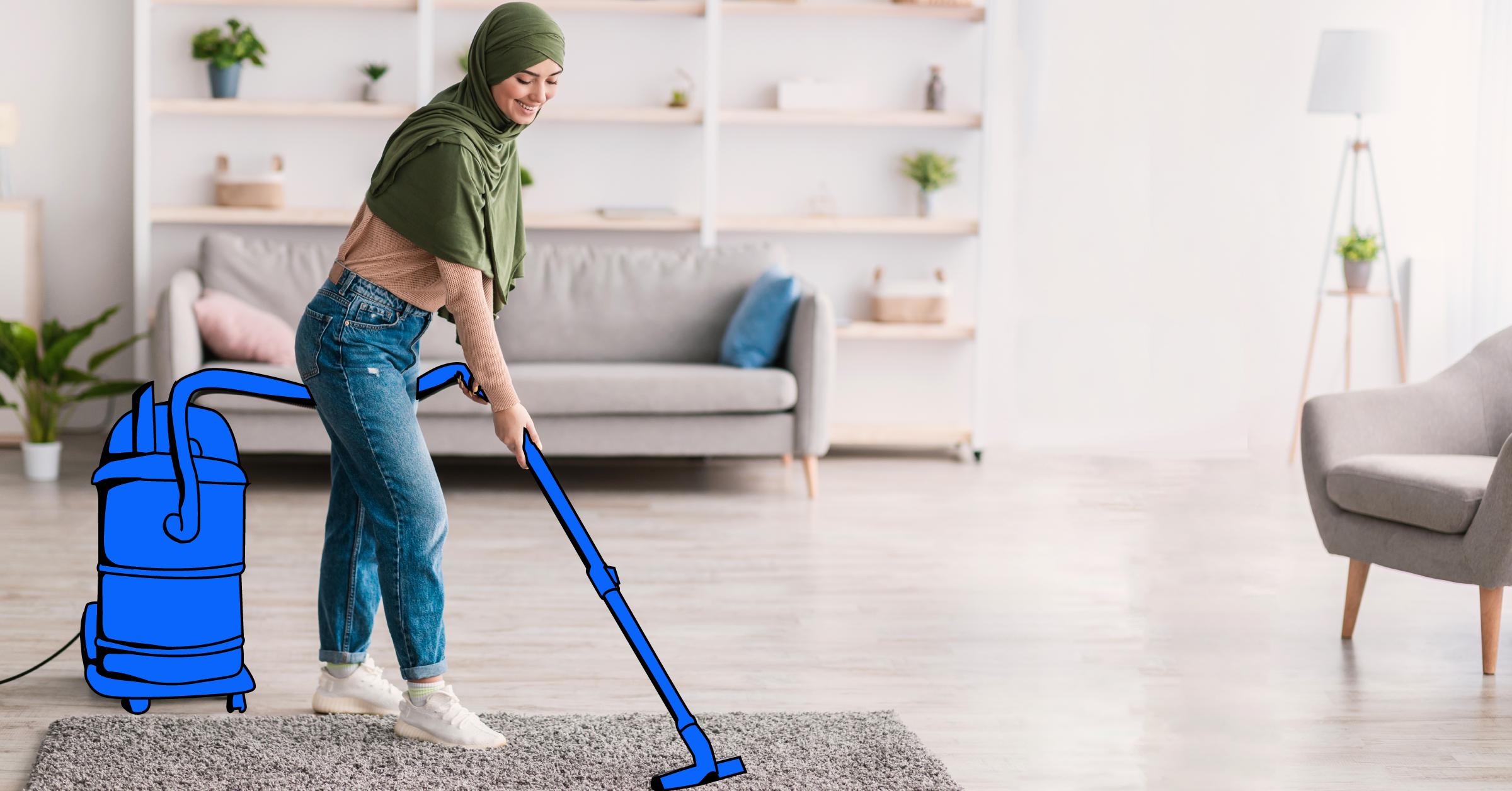Carpet Cleaning is an important part of maintaining your home or workplace. Vacuuming carpets 1-2 times a week will remove dirt and dust from the surface of the fibers.
Hot water extraction or steam cleaning uses a preconditioner (alkaline detergent for synthetic carpets or mild acetic acid for woolen carpets) followed by pressurized steam and a manual or automatic carpet extractor tool.
Dirt and debris are a fact of life, and they can easily build up in carpeting, matting down fibers and causing premature wear. Daily vacuuming combats much of this surface dirt, but regular cleaning is essential to keep it at bay. It is especially important for homes with children and pets who track in sand, clay, and other soils that can stain carpeting.
Professional cleaning services typically use methods like hot water extraction, which involves preconditioning the carpet with a solution that loosens stains and dirt. Then, using a machine with high pressure and a powerful vacuum, water, and soil are removed from the carpet, leaving it clean and dry. Different solutions and procedures may be used depending on the type of carpeting and the level of soiling.
For instance, an absorbent pad cleaning method involves laying down pads that soak up liquids and dirt. A rotary shampooing procedure is another option that uses an applicator brush and a specialized carpet cleaner to break down grease particles and wash the carpet. Finally, a foam cleaning method is a good choice for water-sensitive carpets since it uses little to no water and relies on the chemical properties of the cleaner itself.
Homeowners can also use various DIY solutions to remove ground-in dirt from carpeting, including store-bought powders and foams designed for spot cleaning. Mix a quarter teaspoon of detergent with a cup of water and dampen a rag with this mixture. Then, blot the stain until no more of the cleaning solution transfers to the rag. This technique can be applied to most types of stains and works well for removing dry dirt and other oil-based stains that may not have been able to be lifted by other means.
It is recommended that homeowners have their carpeting professionally cleaned every 12 to 18 months to remove embedded dirt and debris. A professional cleaning service will use tools that most people cannot rent at hardware stores to get the job done quickly and thoroughly. They will also take steps to protect woodwork and furniture pieces and to look for and remove anything that could potentially damage the cleaning equipment. They will use cover guards under rugs and will thoroughly vacuum all areas of the carpet before starting the deeper cleaning process.
Stains
The softness and warmth of carpet lend a comfortable and appealing look to any room, but it also holds on to common spills and dirt much more than most hard-surface flooring. Stains are inevitable, but with the right approach, they can be relatively easy to vanquish. There is an entire niche of cleaning products aimed at removing specific types of carpet stains, and many of these are readily available at any major retail store or online.
The first step in any stain removal is to immediately blot the affected area with a white, absorbent cloth, ($5, Target), working from the outer edge toward the center of the spot to avoid spreading. Always blot—never rub, which can permanently damage the fibers of your carpet. Blotting also reduces the chance of your cleaning cloth reacting with the stain and transferring dye to the carpet.
Organic stains are caused by natural substances, including food and bodily fluids. These stains are typically more easily treatable than non-organic stains, which are usually caused by man-made or manufactured products such as ink, hair dye, nail polish, shoe polish, slime and makeup. In most cases, a simple rinse with plain water is enough to remove organic stains. In more severe cases, a mild detergent solution may be needed.
Grease and oil stains can be especially difficult to clean, but it is possible to lift them with some effort. Start by removing any solids from the spot with a spoon or knife, then blot the area with an absorbent cloth or paper towel. Next, prepare a cleaner by filling a spray bottle with a mix of 1/4 teaspoon grease-fighting liquid dish soap and cold water. Spray the solution onto an absorbent cloth, not the carpet, and blot as it dissolves. Rinse the affected area with cold water and blot dry with another absorbent cloth.
Oxygen bleach is a powerful decolorizer that can also help lift stains, but it can discolor dark-colored carpet. It is best used for light-colored stains, and you should always test it in a hidden area before treating the entire spot. If your stain persists, professional treatment may be needed.
Odors
Carpet acts like a sponge, picking up and holding onto things that can make your home or office smell. From wet dogs to garlic sauces, odors can get trapped in the base of your carpet fibers, where your vacuum cleaner can’t reach. Using the right product can remove these odors from your carpets.
To prevent odors, vacuum and shampoo your carpet on a regular basis. Keeping a carpet clean with regular maintenance will keep it looking and smelling its best. Also, try to treat spills and stains as soon as they happen—the longer a stain or odor is left in the carpet, the harder it is to remove it.
You can also purchase products that specifically target odors in your carpet. These typically use enzymes to break down odor-causing proteins. You can find these at pet stores and online.
Another way to neutralize odors in your carpet is by sprinkling baking soda over the area you want to deodorize and then vacuuming it. This will not only remove the odor, but it will also help keep your carpet fresh.
Another method for removing odors in your carpet is by using a steam cleaner or carpet extractor. Unlike a regular vacuum cleaner, these machines spray water deep into your carpet. They can also pull it back out, allowing your carpet to dry quickly and preventing the growth of mold or mildew. This is a good option if you have pets or children who spend a lot of time playing on the floor. Steamers and extractors also work well on upholstery and tapestry, including drapes. Some models also come with a detachable pretreat stain remover wand for getting rid of set-in stains.
Health
Dirty carpets can be a haven for airborne pollutants. These pollutants can cause a wide range of health problems including allergies, asthma and other respiratory issues. Regular carpet cleaning can help to remove these harmful particles from the home and improve the overall air quality.
Another benefit of professional carpet cleaning is that it helps to extend the life of your carpet. When dirt, dust and other debris accumulate in the carpet fibers, it can damage the fibers and lead to premature wear. These damages can be costly, but professional carpet cleaners are trained to use techniques that will protect the integrity of your carpet while removing as much dirt and debris as possible.
It is also important to keep in mind that dirty carpets can affect your family’s health. If your family suffers from allergies or other respiratory conditions, the dust and allergens that build up in the carpet can trigger these symptoms and make them worse. Regular carpet cleaning can eliminate these allergens and bacteria, helping your family to breathe easier and reducing the risk of health issues.
Regular carpet cleaning can also help to prevent the development of mold in your home. The presence of mold can have serious health implications, especially for children and the elderly. When mold spores are released into the air, they can irritate the respiratory system and cause a wide range of health problems. Professional carpet cleaners can remove mold spores from the home and help to prevent their growth in the future.
One of the most overlooked benefits of carpet cleaning is that it can improve the overall health and well-being of your family. A clean and healthy home can help to reduce stress, which can lead to a number of health problems. In addition, a clean and healthy home can boost the immune system, making it more resistant to disease and illness.

